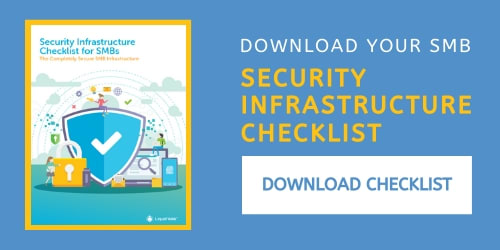
Your data is of paramount importance. No matter whether you store sensitive customer data for your eCommerce business, or you simply have oodles of cat videos, no one wants to wake up one morning and discover that their data is gone. Due to the nature of ever-evolving online attacks, it’s impossible to guarantee that your data will never be hacked or corrupted. The only way to fully protect yourself is to regularly backup your data so you can fully recover in the event of a disaster.
Follow these six best practices from The Most Helpful Humans in Hosting® when choosing your ideal backup solution. These pointers will ensure that your data will be safe and fully recoverable.
1. Use Remote Storage
A critical factor in your backup solution is remote backups. Backing up your data and storing it on the same disk as your original data can be an exercise in futility. Off-site, or at least off-server, backups will remain viable even if your central server is compromised, allowing you to recover your data entirely. Whether on a physical Dedicated or Cloud-Based server, off-site backups are crucial for real disaster recovery.
2. Take Backups Frequently and Regularly
Prevent the loss of your critical data by ensuring backups are taken frequently and on a regular schedule. On Fully Managed Servers, your control panel gives you the flexibility to have account-level backups on your schedule.
Determining how often your data is updated can help you create a timeline of how regularly your data gets backed up. Critical data that is continuously updated will need a more frequent backup schedule. A continuous backup solution would work well in this case. Whereas more static data may only need daily/nightly or even weekly backups. Then, make sure your backup solution matches your business needs.
3. Consider Retention Span
After determining the frequency, it’s also vital to consider how long you will retain each backup. Keeping every backup forever isn’t feasible due to a limited amount of space for storage. Most backup solutions offer a series of retention schedules, such as keeping hourly and daily backups for a week, weekly backups for a month, and monthly backups for a few months or even years. This type of schedule allows for having multiple, recent backups in the instance recovery is needed.

Good business backup practices include retaining specific backups, such as monthly or bi-annual, for as long as possible, if not forever. Also, we recommend researching your industry’s data retention standards and requirements. HIPAA Compliant solutions or those for financial institutions will have strict requirements for backup retention.
4. Keep Backups Encrypted & Protected
There are instances where it’s not enough to back up your data in an off-site location. Aside from the security of the facility holding your backups, encrypting the files is an added step in data security. Backup encryption during storage ensures that your data will be what you expect in the event you need to recover it.
5. Store Backups on RAID Arrays
For a bit of extra redundancy, you should store your backups on RAID arrays. Distributing your data across two or more drives in a RAID array allows for better performance, reliability, and more extensive data sets in your backup solution. RAIDs can also help ensure your stored data gets protected from the failure of a single drive.
Redundancy, also known as high availability infrastructure, is the best way to decrease your risk of going offline and/or losing data during a disaster.
6. Stack Your Backup Solutions
Because backup solutions will differ in how they treat your data, it’s best to use multiple solutions. For example, Liquid Web’s Dedicated Server Hosting backup solution takes backups of your entire server and stores it in a secure and remote location.
Alternatively, cPanel backups only take copies of your cPanel account and can be stored either locally or remotely. Local reserves via cPanel are available for every user. cPanel backups can be especially useful for those users who have multiple accounts on one server but only need to restore one account.
Due to the different benefits of both solutions, we recommend backing up both full images of your server in addition to smaller snapshots of your cPanel accounts. Stacking your backup solutions in this manner will ensure your data will be recovered as quickly and efficiently as possible, no matter what kind of disaster hits.
[ad_2]
Source link







